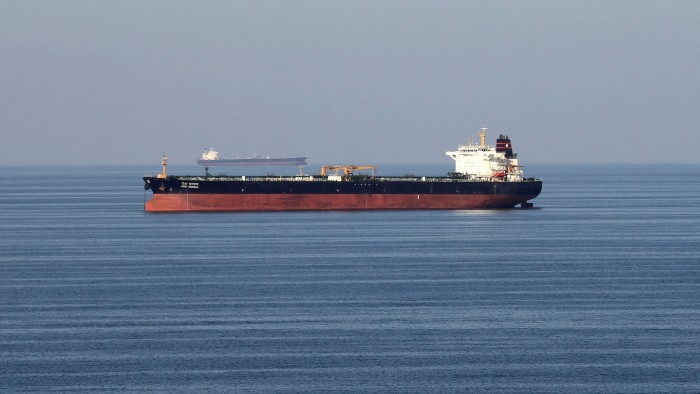Unlock the Editor’s Digest for free
Roula Khalaf, Editor of the FT, selects her favourite stories in this weekly newsletter.
Insurance prices for ships travelling through the Strait of Hormuz have jumped more than 60 per cent since the start of the war between Israel and Iran as the conflict threatens shipping in a key chokepoint for crude oil.
As of this week, the cost of hull and machinery insurance for ships passing through the strait — a narrow waterway between Iran and Oman, connecting the Gulf to the Arabian Sea — as well as the wider Gulf area had risen from 0.125 per cent of the value of the ship to about 0.2 per cent, according to the world’s largest insurance broker Marsh McLennan. This pushes the cost of cover for a $100mn ship from $125,000 to $200,000.
Hull and machinery insurance covers damage to the ship itself, as opposed to cargo or third-party liability.
“We’ve not yet seen a missile fired at a ship in the Arabian Gulf, so what it represents is the market saying, look, there’s definitely a heightened level of concern about the safety of shipping in the region,” Marcus Baker, global head of marine and cargo insurance at Marsh McLennan, told the Financial Times. Prices could rise further, he added.
Ships trying to pass through the strait face a range of dangers, from electronic interference to attacks by Iran-backed Houthi rebels and the threat of further escalation by Israel and Iran, said brokers and insurers.
On Monday there was a collision between two oil tankers near the Strait of Hormuz. While the cause of the crash has not yet been publicised, one ship had transmitted atypical signals about its position, raising concerns about electronic interference.
Baker said insurers were also worried that Houthi militants could widen their attacks, damaging more ships than the US, UK and Israeli-flagged vessels they have generally been targeting.
The market is “concerned about every vessel” travelling through the area because of Houthi attacks, Baker said.
Some insurers could stop offering cover because of the risks, he added, but others might see any pullback as an opportunity. “War itself, as an insurance product, tends to be . . . either you lose everything or make a fortune. And many fortunes have been made by underwriters prepared to take a risk,” he said.
Insurance rates for cargo, including oil, were also likely to rise because of the conflict, multiple brokers said, but had been slower to respond.






